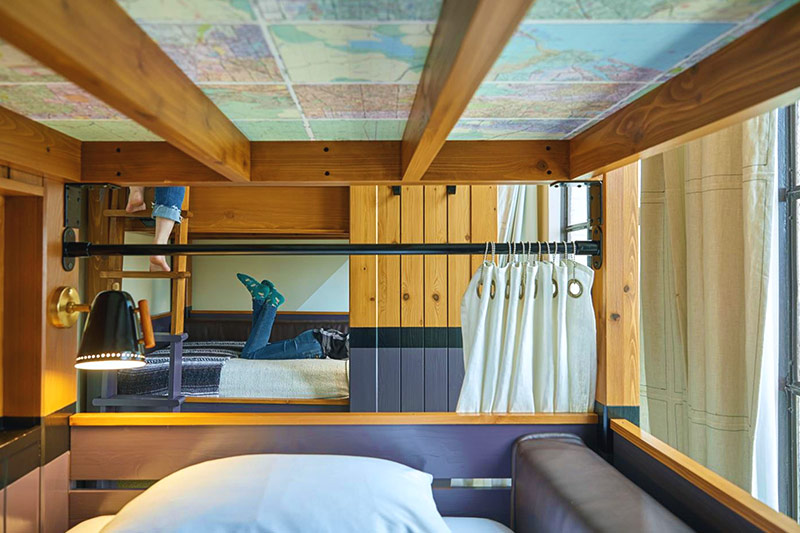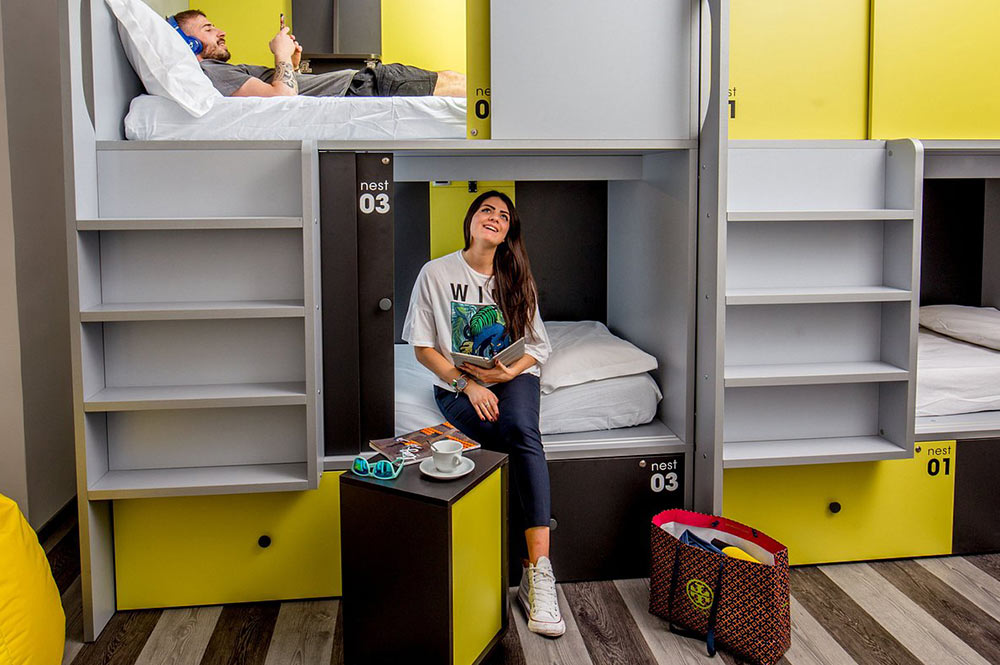Hotels promise privacy, refined amenities, and a formal atmosphere suitable for those seeking comfort and convenience.
Hostels welcome travelers with their social atmosphere and budget-friendly rates.
However, navigating the trade-offs involves balancing privacy and convenience against the appeal of social spaces and budget.
Here is everything you need to know about the differences between a Hotel and a hostel.
1. Appearance
Hotels:
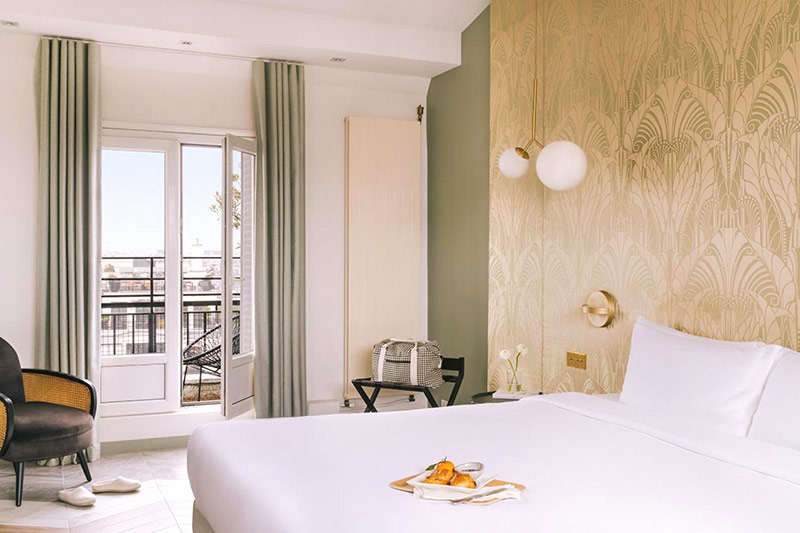
- Polished and Professional: Think of a hotel as the person who always shows up in a suit and tie. Whether it's a budget-friendly hotel or a five-star luxury resort, hotels aim for a clean and professional look.
- Uniform Across Chains: Ever notice how a room in one hotel chain looks similar (or exactly the same) to another in a different city? That's because hotel chains like to keep things consistent.
- Range from Basic to Luxurious: From basic rooms with just the essentials to luxurious suites with chandeliers and marble bathrooms. The design often reflects their star rating and reviews, so you know what you’re getting into.
Hostels:
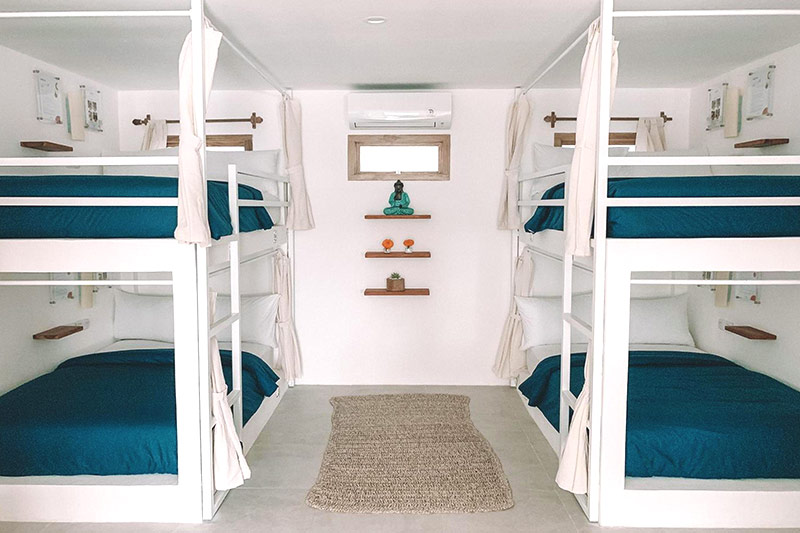
- Varied: Hostels are like a box of chocolates – you never know what you’re going to get. Some are modern and minimalist, while others burst with color and character.
- Quirky, Artistic, or Minimalist: Ever wanted to stay in a place that feels like an art gallery or a funky café? Hostels can be quirky and full of surprises. You might find murals on the walls, creative furniture, or even themed rooms.
- Designed for Social Interaction: Common areas in hostels are designed for meeting fellow travelers, playing games, or just chilling out.
2. Room Types
Hotels:
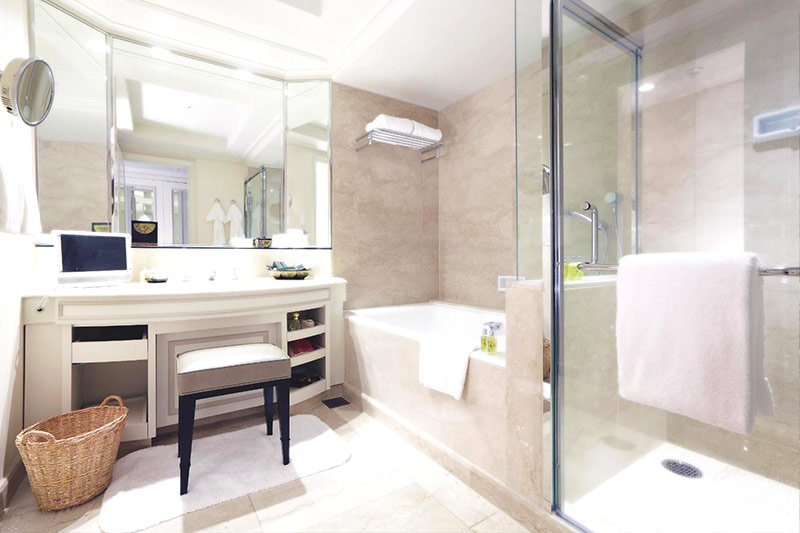
- Standard Rooms: The most common type, featuring a bed, bathroom, TV, and basic amenities.
- Deluxe Rooms: offering more space, better views, and extra amenities like a mini-fridge or a better TV.
- Suites: Larger rooms with separate living areas.
- Connecting Rooms: Two rooms with a door between them, perfect for families or groups who want to stay close together.
- Accessible Rooms: Designed for guests with disabilities, featuring wider doorways, grab bars in the bathroom, and other accessible features.
Hostels:
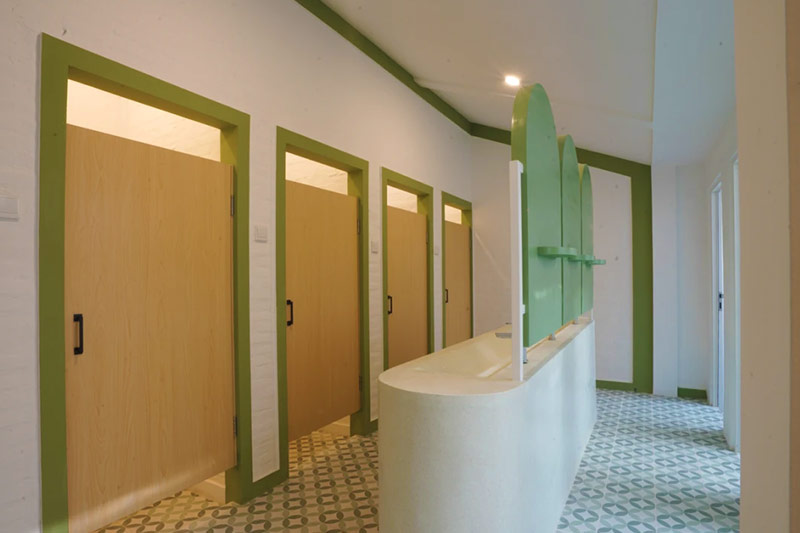
- Dormitory Rooms: Shared rooms with multiple beds (bunk beds are common, some even have privacy curtains). You’ll share the space with other travelers, including bathroom facilities, which can be in the same room or a separate space (with multiple showers).
- Private Rooms: Can come with shared or private bathroom facilities. Usually caters to couples or travelers who want more privacy but access to the social atmosphere of a hostel.
- Family Rooms: Larger private rooms are designed for families or groups, usually with multiple beds and sometimes a private bathroom.
- Pod/Capsule Rooms: Individual sleeping pods or capsules within a shared room.
The number of beds can vary from 4 to 16 (some even have 32 beds!). These dorms can be:
- Mixed Dorms: Both men and women can stay.
- Female-Only Dorms: Reserved for women, offering a bit more privacy and comfort for some female travelers.
- Male-Only Dorms (rare, can be found in specific countries like Japan): Reserved for men, providing a more comfortable space for some male travelers.
3. Amenities
Hotels:
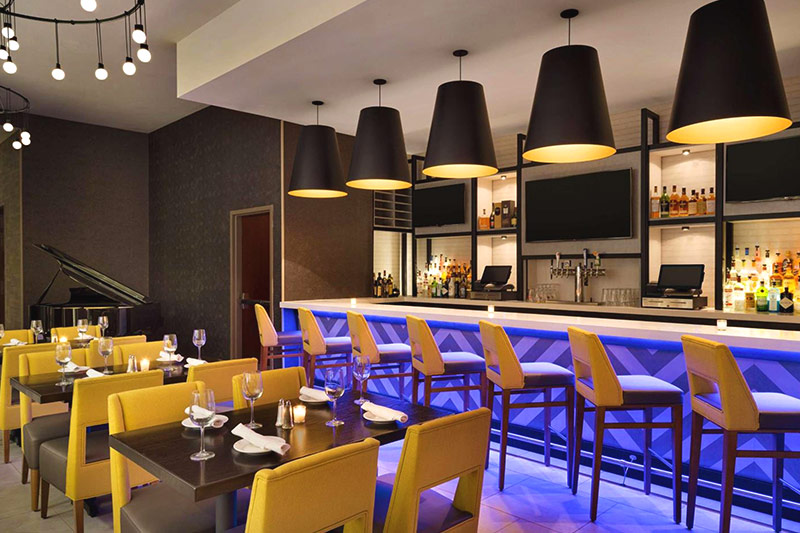
- In-room Amenities: TV, Minibar, Room Service, Toiletries, Wi-Fi, Air Conditioning/Heating.
- General Amenities: Gym, Pool, Spa, Business Center, Restaurant, Bar, Concierge.
Hostels:
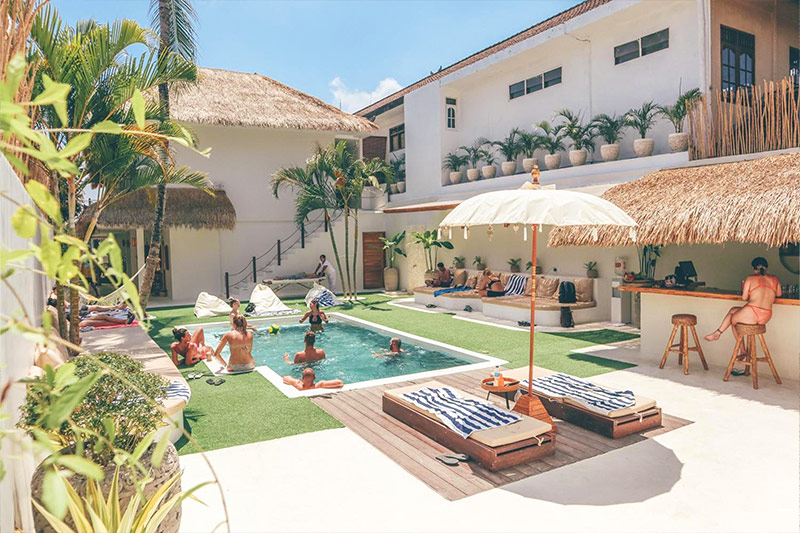
In-room Amenities:
- Limited Amenities: Typically, you’ll find the basics like a bed and possibly a reading light.
- Lockers: Secure storage for your belongings. Bring your own lock for secure storage in lockers.
- Wi-Fi: Usually free.
- Toiletries: Most hostels do not provide toiletries, so bring your own. Some may offer basic items for free or for purchase.
- Towels: Some hostels provide towels for free, others offer them for a small fee, and some do not provide them at all.
- Linen: In Europe, it’s common to rent linens for a fee or bring your own. While in other places, hostels often provide linens, and some may even make your bed daily.
General Amenities:
- Communal Kitchen: Fully equipped kitchens where you can cook your own meals. Great for saving money and meeting other travelers.
- Lounge: Comfortable seating areas with books, games, and sometimes TVs or computers.
- Game Rooms: Spaces with pool tables, table tennis, board games, and sometimes video games.
- Laundry Facilities: Washers and dryers can be available for guest use, usually for a small fee.
- Bar or Café: Offering affordable drinks and snacks. Great places to socialize!
- Tours and Activities Desk: Information and booking for local tours, pub crawls, and social events.
4. Privacy
Hotels:
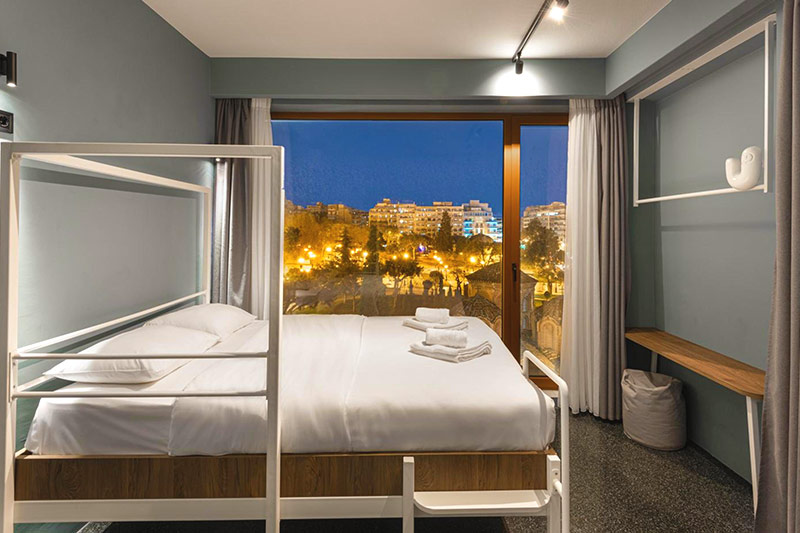
- Individual Rooms: Hotels offer a high level of privacy with individual rooms. You have your own space to relax and unwind without disturbance.
- Soundproofing: Soundproofing varies between hotels, but generally, it's designed to minimize noise from neighboring rooms and outside.
- Privacy Assurance: Room service and housekeeping usually respect your privacy, ensuring minimal intrusion during your stay.
Hostels:
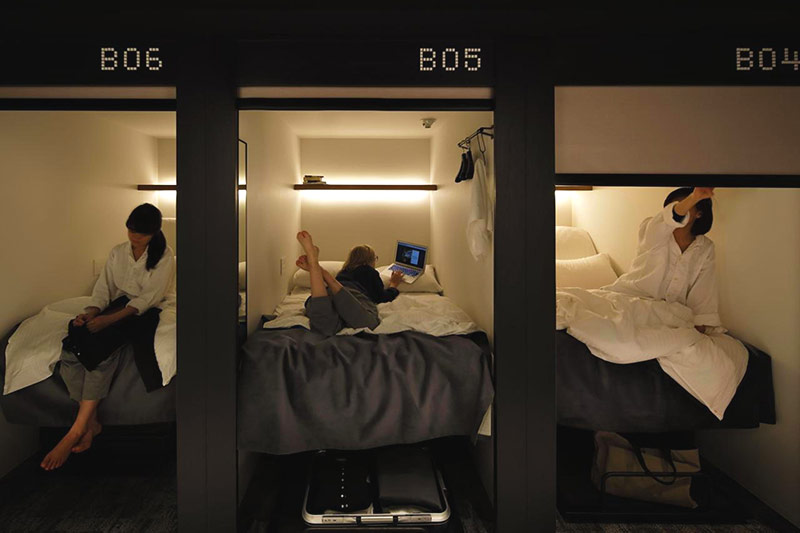
- Bunk Beds: These beds offer minimal privacy but maximize space efficiency.
- Pods or Capsule Beds: Offer more privacy with curtains or doors that you can close.
- Privacy Curtains: Many hostels now include privacy curtains around each bed, offering a degree of personal space even in shared rooms.
- Communal Spaces: Common areas like lounges and kitchens are shared.
- Private Rooms: Some hostels provide private rooms with locked doors.
5. Activities
Hotels:
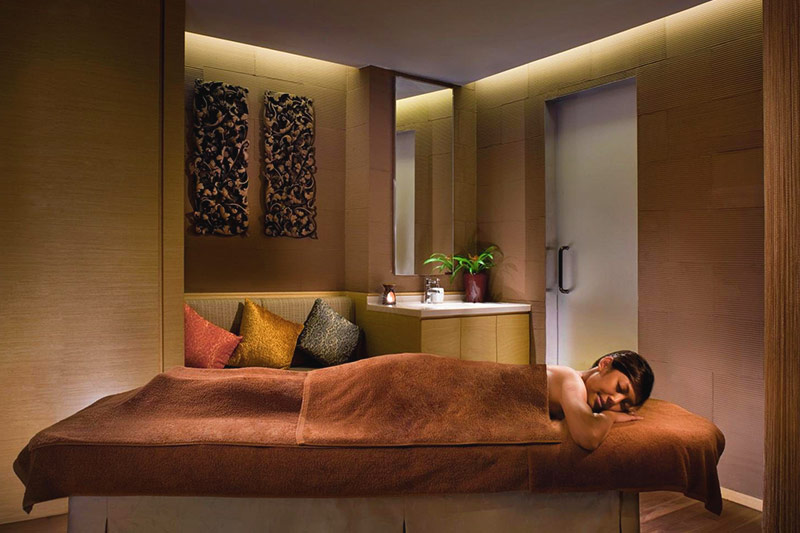
- Organized Tours and Excursions: Hotels sometimes offer organized tours and excursions to nearby attractions.
- Extra Cost Activities: Many activities at hotels come with an additional cost, such as guided tours, cooking classes, or cultural experiences.
- On-site Entertainment: On-site entertainment options may include bars, nightclubs, live shows, and performances.
Hostels:

- Social Activities: You could find activities like group tours, pub crawls, and game nights.
- Volunteer-led Activities: Some hostels organize volunteer-led activities, such as community projects or eco-friendly initiatives.
- Cultural Workshops and Events: Cultural workshops, language exchange sessions, and local events are often organized by some hostels.
6. Working
In Hotels, you could find:
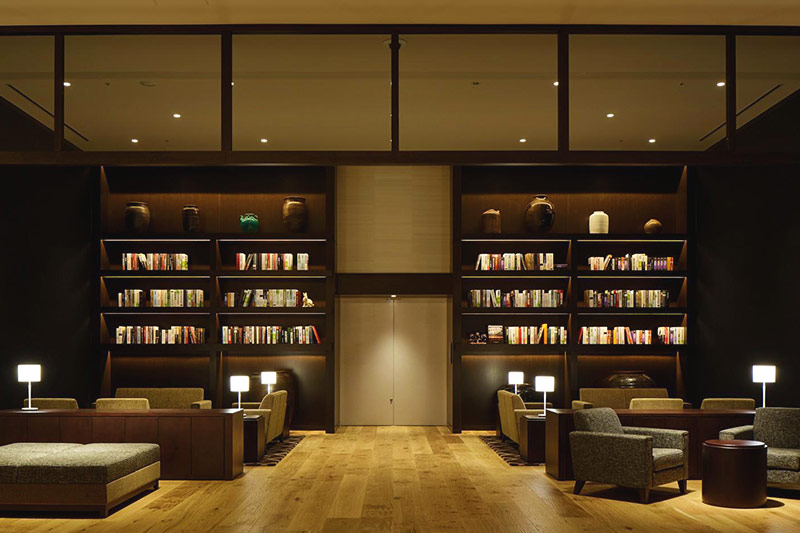
- Business Facilities
- Reliable Wi-Fi and Desk Space
- Executive Lounges
In Hostels, you could find:
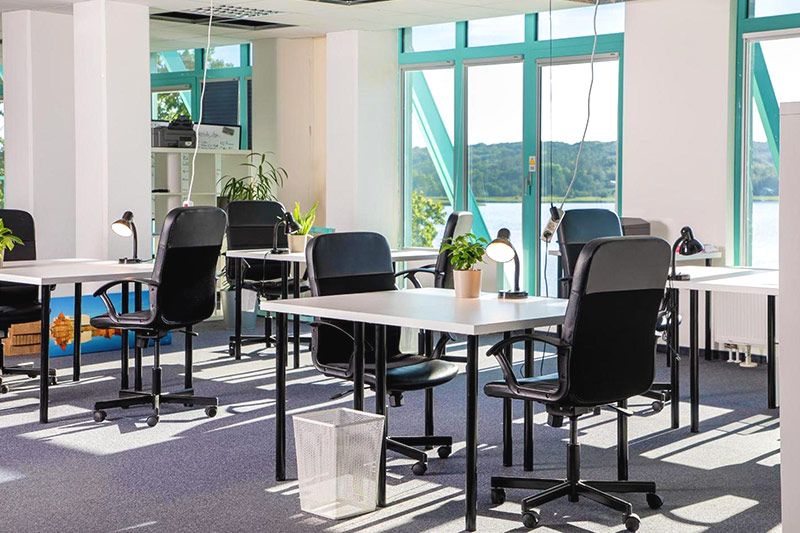
- Common Area Workspaces for digital nomads
- Wi-Fi Availability
Recap
Hotels: The ambiance in hotels tends to be more formal, characterized by polished decor and a structured approach to customer service.
Hostels: Hostels cultivate a social and informal environment that encourages interaction among travelers.
Good Reasons to Stay in a Hostel
- Budget-effective
- Social
- Flexibility: Often more flexible with check-in and check-out times.
- Unique Atmosphere
Cons of Staying in a Hostel
- Privacy
- Noise
Hostelz.com is the world’s most comprehensive hostel-focused travel platform. We bring together listings from all the major booking sites to help you easily compare prices, see real guest reviews, and find the best deals—no matter where you’re headed. Check out our How It Works page.
Not sure which hostel to pick? Use our Hostel Comparizon Tool to compare your favorite hostels side-by-side before you book.
Let us help you travel smarter and sleep cheaper.
Travel Cheaper, Travel Longer
